
Kayanza: The Heart of Burundi's Coffee Country
Nestled in the northern highlands of Burundi, Kayanza is a charming city known for its lush landscapes and rich cultural heritage. The region is famous for its coffee plantations, producing some of the finest coffee in the world. Visitors can explore these plantations, learn about the coffee production process, and even sample freshly brewed coffee right at the source. Kayanza offers a serene escape with its rolling hills, vibrant markets, and welcoming locals. The city's markets are a treasure trove for those looking to take home unique handicrafts, fresh produce, and local delicacies. The bustling atmosphere provides a glimpse into everyday life in Burundi, offering an authentic experience that is both enriching and memorable. Nature enthusiasts will find Kayanza a paradise with its nearby forests and national parks. These natural reserves are home to a variety of wildlife and offer excellent opportunities for hiking, bird-watching, and picnicking. The scenic beauty of the region, coupled with its tranquil environment, makes it an ideal destination for those looking to unwind and connect with nature.
Local tips in Kayanza
- Visit during the coffee harvest season (May to July) to experience the coffee-making process firsthand.
- Hire a local guide to explore the coffee plantations for a more informative experience.
- Don't miss the local markets for unique handicrafts and fresh produce.
- Carry local currency (Burundian franc) as card payments are not widely accepted.
- Pack comfortable walking shoes for exploring the hilly terrain and natural trails.
Kayanza: The Heart of Burundi's Coffee Country
Nestled in the northern highlands of Burundi, Kayanza is a charming city known for its lush landscapes and rich cultural heritage. The region is famous for its coffee plantations, producing some of the finest coffee in the world. Visitors can explore these plantations, learn about the coffee production process, and even sample freshly brewed coffee right at the source. Kayanza offers a serene escape with its rolling hills, vibrant markets, and welcoming locals. The city's markets are a treasure trove for those looking to take home unique handicrafts, fresh produce, and local delicacies. The bustling atmosphere provides a glimpse into everyday life in Burundi, offering an authentic experience that is both enriching and memorable. Nature enthusiasts will find Kayanza a paradise with its nearby forests and national parks. These natural reserves are home to a variety of wildlife and offer excellent opportunities for hiking, bird-watching, and picnicking. The scenic beauty of the region, coupled with its tranquil environment, makes it an ideal destination for those looking to unwind and connect with nature.
When is the best time to go to Kayanza?
Iconic landmarks you can’t miss
Bujumbura Zoo
Discover the enchanting wildlife of Burundi at Bujumbura Zoo, a family-friendly destination filled with diverse animal species and lush landscapes.
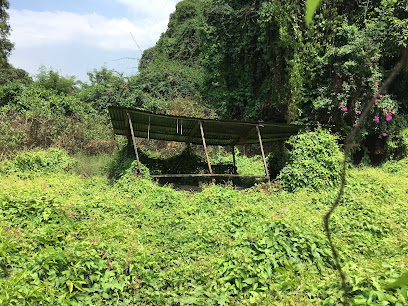
Marché central de Bujumbura Siyoni
Experience the vibrant atmosphere and rich local culture at Marché Central de Bujumbura Siyoni, the heart of Bujumbura's market scene.
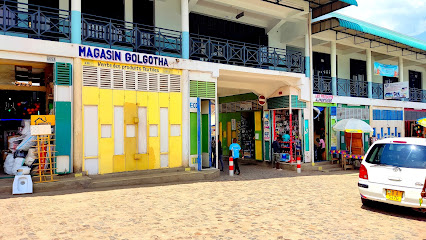
Chutes de la Karera Falls
Experience the breathtaking beauty of Chutes de la Karera Falls, a stunning natural wonder in Burundi's lush landscape, perfect for nature lovers and adventurers.
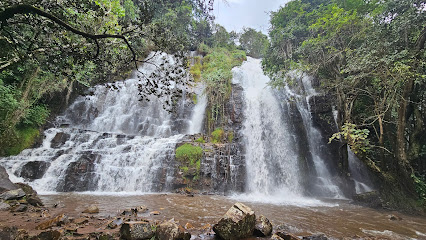
Livingston-Stanley Monument
Explore the Livingston-Stanley Monument in Ramba, a historic tribute to explorers with stunning views and rich stories waiting to be discovered.
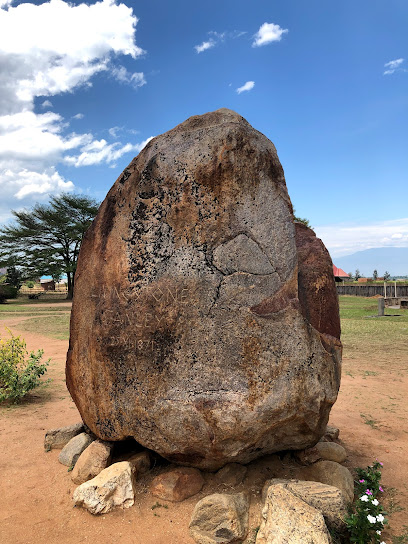
National Museum of Gitega
Explore the National Museum of Gitega, where Burundi's rich history and vibrant culture come alive through captivating exhibits and artifacts.
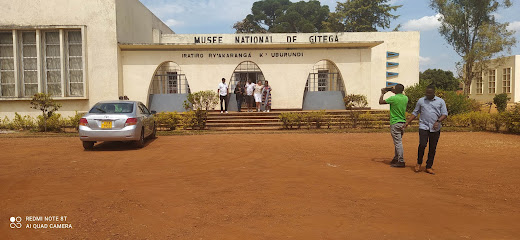
Gishora Drum Sanctuary
Experience the vibrant traditions of Burundi at Gishora Drum Sanctuary, a UNESCO World Heritage Site celebrating the art of drumming and cultural heritage.
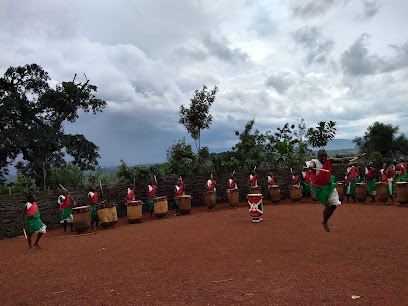
Kibira National Park
Discover diverse wildlife and stunning landscapes at Kibira National Park, a serene retreat in the heart of Burundi's lush highlands.
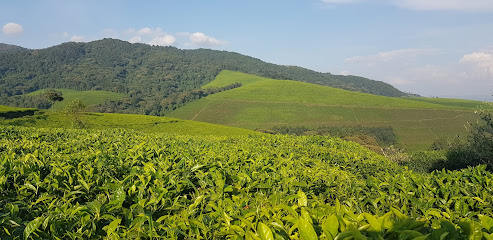
Rusizi National Park
Discover the diverse wildlife and stunning landscapes of Rusizi National Park, a serene escape in the heart of Burundi.
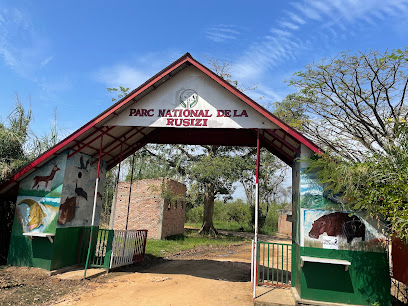
Eglise Vivante
Discover the warmth and spirituality of Eglise Vivante, an Evangelical church in Bujumbura, where community and faith intertwine amidst beautiful surroundings.
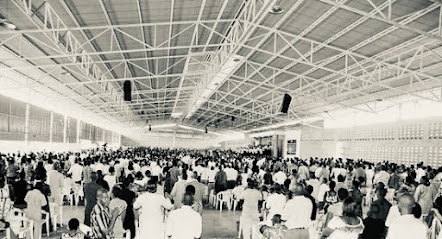
Regina Mundi Cathedral
Explore Regina Mundi Cathedral, a breathtaking church in Bujumbura, where architectural beauty meets spiritual tranquility in the heart of Burundi.
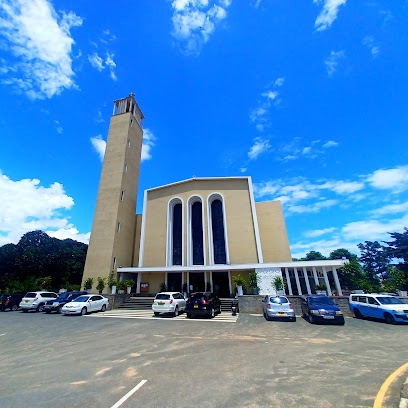
Marché de Kayanza
Experience the heart of Kayanza at Marché de Kayanza, where shopping meets culture in a vibrant and authentic Burundian market atmosphere.
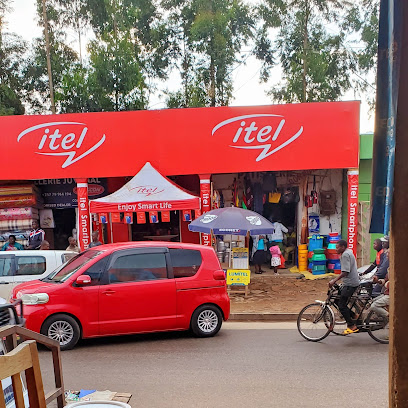
Hôtel Le Paradis
Experience the comfort and charm of Hôtel Le Paradis, your ideal base for exploring Kayanza, Burundi, with essential amenities and local insights.

Augustine Tours
Discover the beauty of Burundi with Augustine Tours - your trusted partner for unforgettable travel experiences, from sightseeing to car rentals.
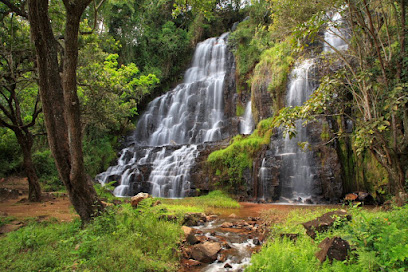
Burundi Discovery Tours
Experience the beauty and culture of Burundi with personalized tours that showcase the best of this stunning East African destination.
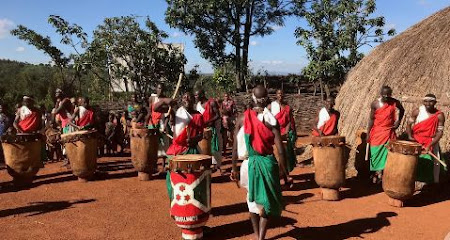
BAHA'I NATIONAL CENTER
Immerse yourself in the tranquility and beauty of the Baha'i National Center in Bujumbura, a spiritual oasis that embodies unity and peace.
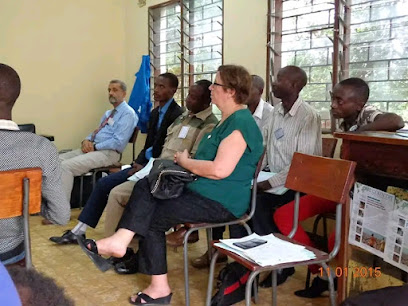
Unmissable attractions to see
Ethnographic Museum
Uncover Rwanda's rich cultural tapestry at the Ethnographic Museum in Butare, a premier destination for history and art lovers.
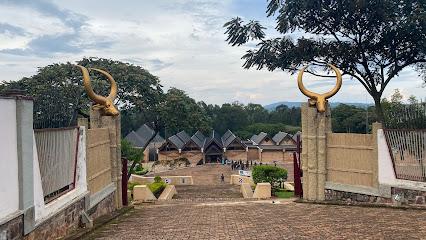
Kibira National Park
Explore the breathtaking landscapes and rich biodiversity of Kibira National Park in Burundi, a hidden gem for nature enthusiasts and adventure seekers.
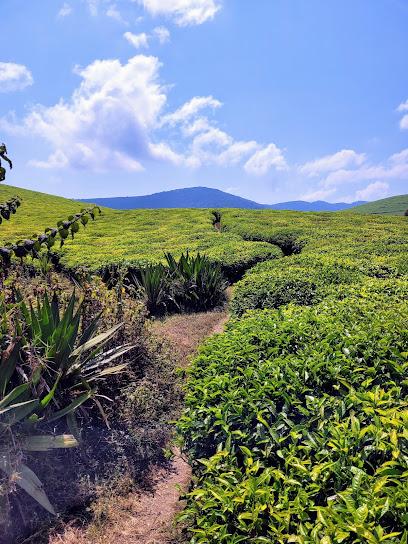
Mausolée des Héros de la Démocratie
Reflect on Burundi's journey to democracy at this serene memorial park in Bujumbura, honoring the heroes who fought for freedom.
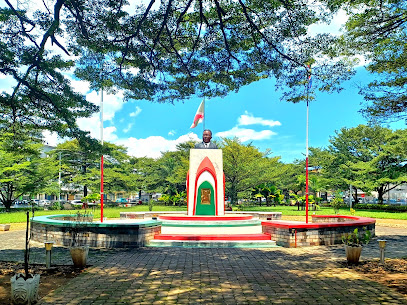
Ile d'Akagwa (Akagwa Island)
Explore the serene beauty of Ile d'Akagwa, a tranquil island retreat in Burundi perfect for nature lovers and those seeking peace.
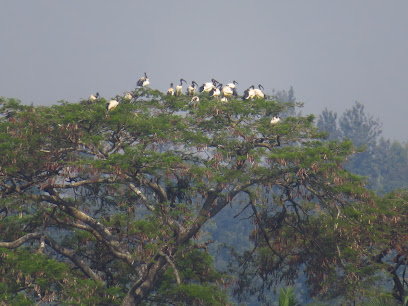
Mutimbuzi River Estuary
Discover the tranquil beauty of the Mutimbuzi River Estuary, a stunning natural attraction in Bujumbura, perfect for nature lovers and peace seekers.
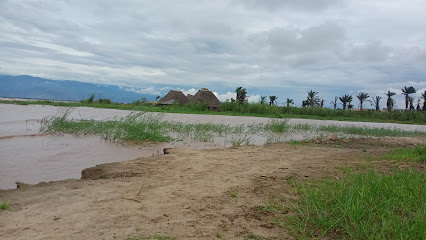
Igiti c'Urukundo
Explore the serene beauty of Igiti c'Urukundo, a lush garden in Bujumbura, perfect for relaxation, nature appreciation, and peaceful retreats.
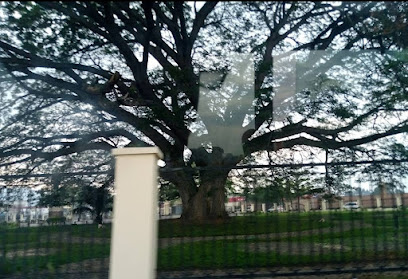
HN
Explore HN Park in Kibungere - a serene retreat with lush landscapes and tranquil vibes perfect for relaxation and family outings.

Estádio
Experience the vibrant local culture at Estádio in Gitega, a dynamic tourist attraction celebrating Burundian sports and community spirit.

Berakhah garden
Experience the tranquil beauty of Berakhah Garden in Bujumbura, a perfect retreat for relaxation and nature lovers.

Pont de Université Lumière
Discover the enchanting Pont de Université Lumière in Bujumbura, a stunning bridge that offers breathtaking views, cultural immersion, and vibrant local life.

Mountain kamaranyundo
Discover the breathtaking beauty of Mountain Kamaranyundo in Burundi: Hike scenic trails, spot diverse wildlife, and enjoy panoramic views.

Nyakiruri
Discover Nyakiruri: Immerse yourself in Burundi's culture, explore scenic landscapes, and connect with welcoming locals in this hidden gem.

Essential places to dine
Arena Restaurant Lounge Bar
Discover vibrant dining at Arena Restaurant Lounge Bar in Bujumbura—where local flavors meet live entertainment.
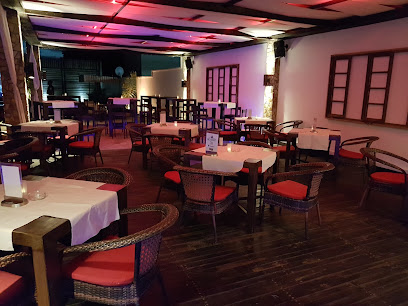
Waka Waka
Experience authentic Italian cuisine at Waka Waka in Bujumbura - where tradition meets local flavor for an unforgettable dining experience.
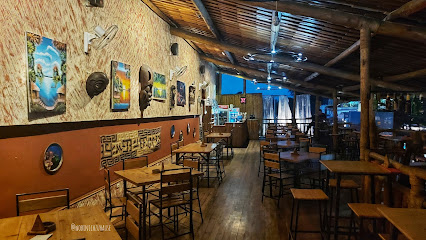
Zanzi
Experience the best of Burundian cuisine at Zanzi in Bujumbura – where flavor meets hospitality.
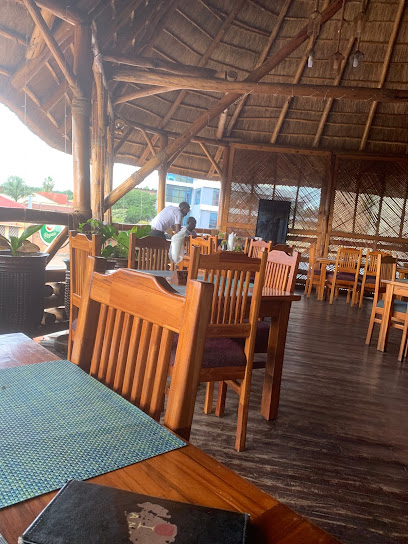
Harrys Grill House
Experience the best barbecue at Harry's Grill House in Bujumbura - where flavor meets hospitality in a vibrant setting.
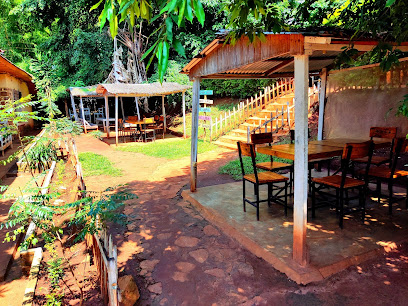
Maquis
Experience authentic Burundian flavors at Maquis in Bujumbura – where every dish tells a story.
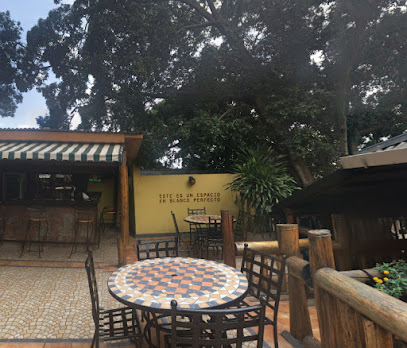
Pasta comedia
Savor authentic Italian flavors at Pasta Comedia in Bujumbura – where every meal is a delightful experience.
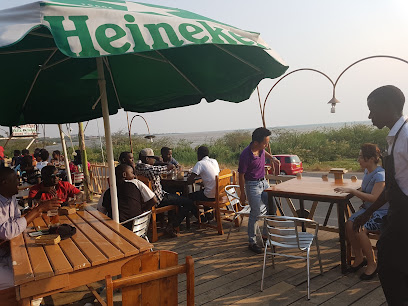
Belvedere Restaurant
Experience exquisite dining with stunning lake views at Belvedere Restaurant in Bujumbura, where local flavors meet culinary excellence.
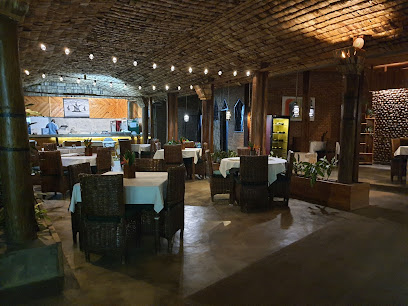
Restaurant Chez Orphée
Experience authentic Burundian cuisine and international dishes at Restaurant Chez Orphée in Bujumbura – where every meal is a celebration.
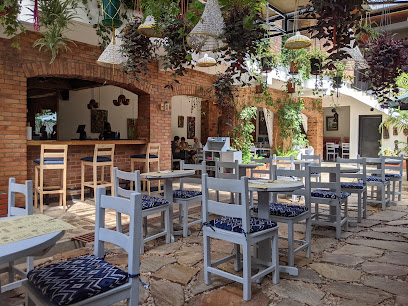
Paparazzi Restaurant
Discover the flavors of Burundi at Paparazzi Restaurant – where family-friendly dining meets stunning lakeside views.
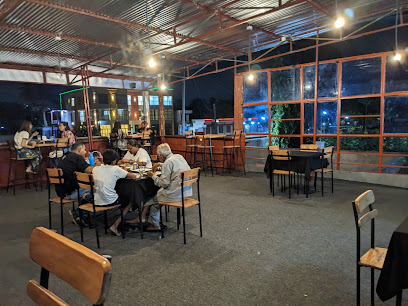
Eden Garden Resort
Discover the serene charm and exquisite flavors at Eden Garden Resort in Bujumbura - a culinary gem surrounded by nature.
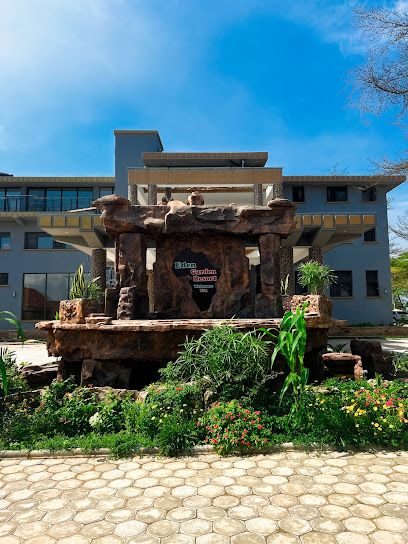
Restaurant Oasis
Discover delightful Burundian flavors at Restaurant Oasis in Bujumbura - a perfect dining spot blending local culture with international cuisine.
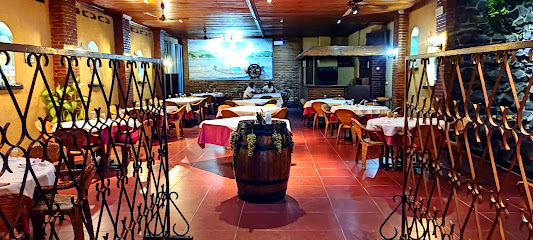
Restaurant Tanganyika
Experience authentic Burundian cuisine with breathtaking views at Restaurant Tanganyika in Bujumbura.
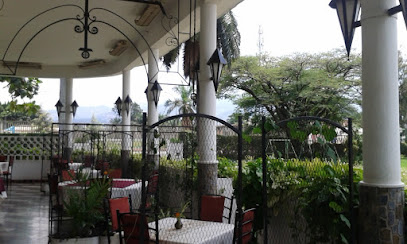
Kanowe
Experience authentic Burundian flavors at Kanowe, a top-rated restaurant in Bujumbura offering delicious cuisine and a warm atmosphere.
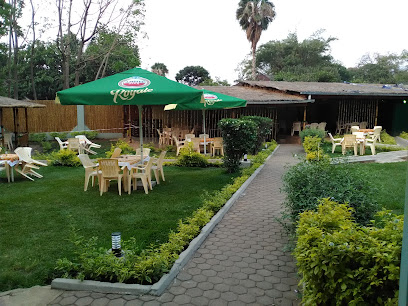
Asian Restaurant
Discover authentic Asian flavors at Bujumbura's premier restaurant offering Indian, Pakistani, and Pan-Asian cuisine in an inviting atmosphere.
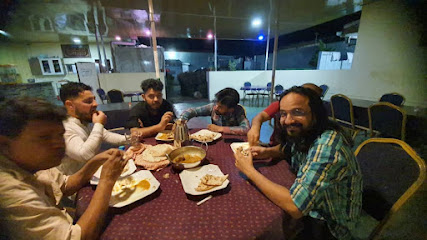
Atrium Restaurant
Discover luxury dining at Atrium Restaurant - where exquisite cuisine meets stunning views on Lake Tanganyika.
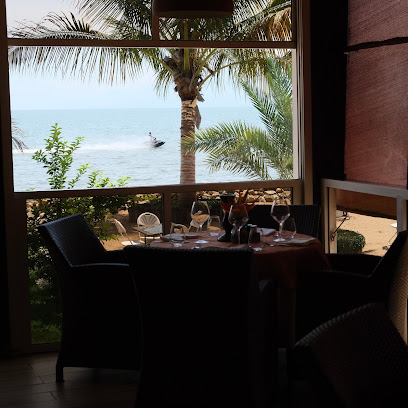
Markets, malls and hidden boutiques
Marché de Kayanza
Discover cultural treasures and local flavors at Marché de Kayanza, a vibrant shopping hub in the heart of Burundi's Kayanza region.
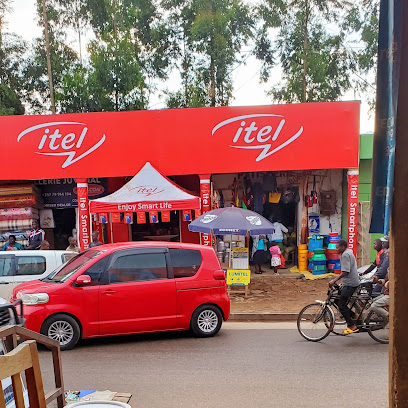
Teza tea factory
Explore the vibrant flavors of Burundi at Teza Tea Factory, where tea enthusiasts can taste, learn, and immerse in the art of tea-making.
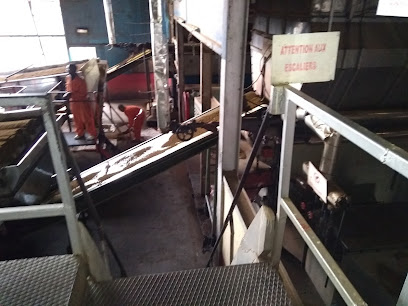
Gitega Galerie GWANZU
Explore the vibrant culture and craftsmanship of Burundi at Gitega Galerie GWANZU, a shopping haven for unique local crafts and modern goods.
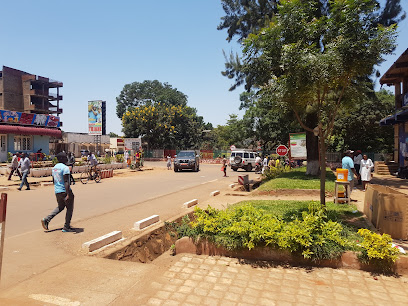
Boutique Kwa Manweri
Experience the local flavors of Burundi at Boutique Kwa Manweri, a top-rated grocery store in the heart of Bujumbura.

The Children
Experience the vibrant heart of Ngozi at The Children grocery store, where local flavors and community spirit come together.
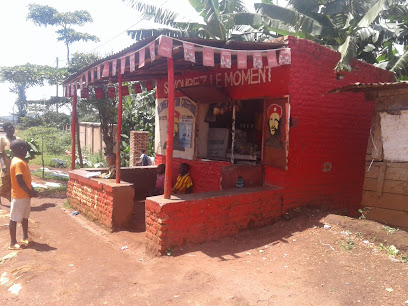
Murambi Coffee
Discover the essence of Burundian coffee culture at Murambi Coffee, a vibrant shopping destination in Nkonyovu, perfect for tourists and locals alike.

Magasin Kubiyo
Explore the vibrant selection at Magasin Kubiyo, your ideal destination for quality hardware and supplies in Burundi.

Pharmacie rural Bugarama
Discover Pharmacie Rural Bugarama in Kayanza - a community pharmacy providing essential health services and products for travelers and locals.
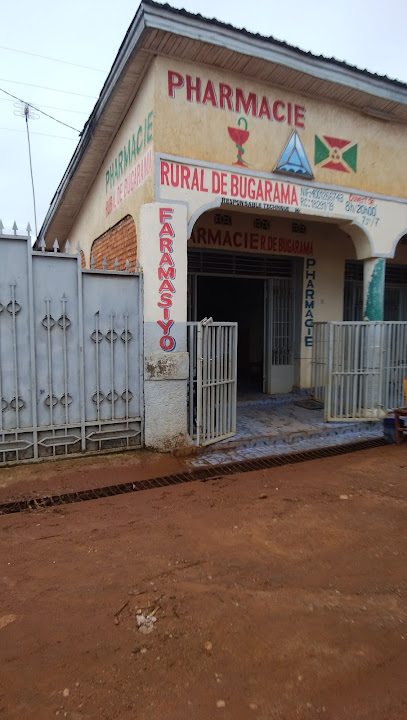
Kilakitu
Explore Kilakitu Shopping Mall in Bujumbura for an exciting blend of shopping, dining, and local culture - an essential stop for every traveler.

Shop COLUCAAB - CHASAA Burundi
Explore a treasure trove of unique home goods and handicrafts at Shop COLUCAAB - CHASAA in Bujumbura, reflecting the rich culture of Burundi.

Accesoires
Explore Accesoires in Ngozi for a unique blend of shopping experiences, featuring local crafts, trendy fashion, and delicious cuisine.

Bujumbura store
Explore Bujumbura's vibrant cosmetics store for the best in beauty products, blending local charm with international quality.
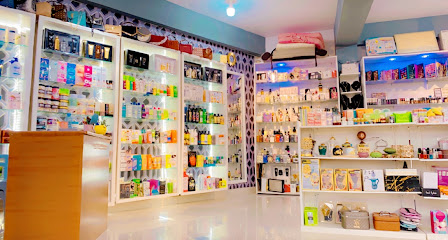
Vyukusenge Shop
Explore the Vyukusenge Shop in Bujumbura for unique furniture and local crafts, reflecting Burundi's rich cultural heritage and craftsmanship.
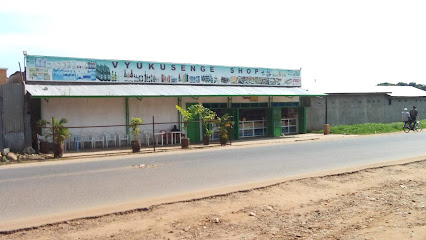
ITEL MOBILE KAYANZA
Explore the latest mobile technology at ITEL Mobile Kayanza, where vibrant local culture meets modern connectivity in the heart of Burundi.
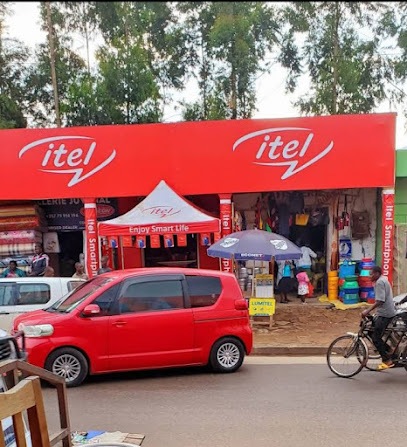
Hakiza lili
Explore Hakiza Lili in Ngozi, a premier electronics store offering a wide range of gadgets and exceptional service for every tech enthusiast.
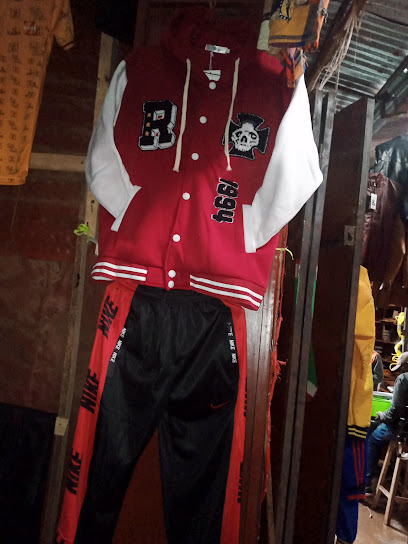
Essential bars & hidden hideouts
Peace and Love Bar
Discover the lively charm of Peace and Love Bar in Bujumbura, where drinks and good company create unforgettable memories.
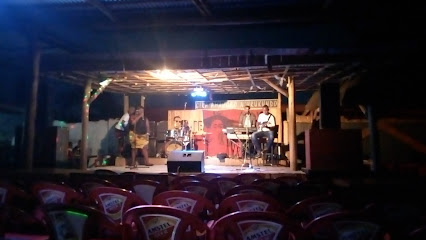
Kumutwenzi Bar
Discover the vibrant nightlife of Bujumbura at Kumutwenzi Bar, where local culture meets a cozy atmosphere for an unforgettable experience.
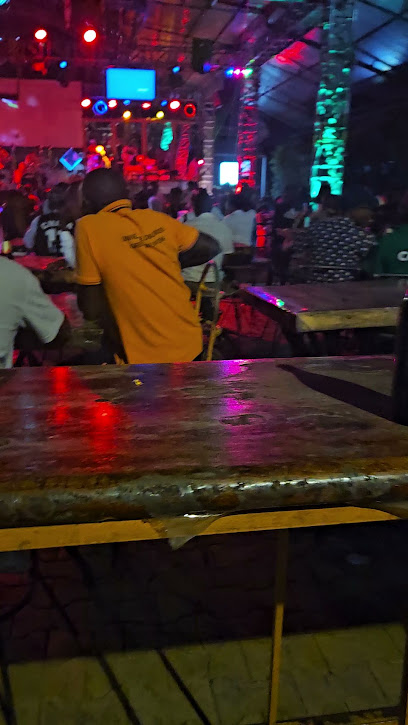
Zanzi Bar
Experience the vibrant nightlife of Bujumbura at Zanzi Bar, where local culture meets refreshing drinks and good company.
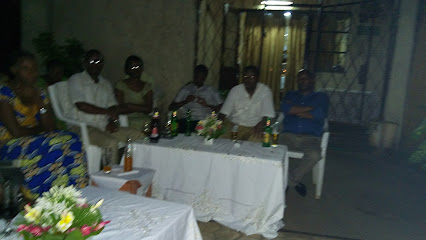
MOTEL-BAR KU NONZI
Experience the vibrant nightlife of Bujumbura at MOTEL-BAR KU NONZI, where local drinks and friendly faces await.
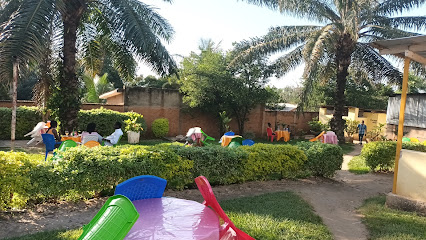
Snack Bar BUKEYENEZA
Experience the lively ambiance and authentic flavors at Snack Bar BUKEYENEZA, a premier beer hall in Shumba, Burundi.

BEST GARDEN RESTO-BAR
Experience the vibrant atmosphere of the Best Garden Resto-Bar in Bujumbura, where local flavors meet a lush garden setting for an unforgettable culinary escape.

Kwa Vyisi Bar
Discover the lively spirit of Bujumbura at Kwa Vyisi Bar, where local charm meets vibrant nightlife, perfect for socializing and relaxation.

Slobar Kibenga
Discover the vibrant nightlife at Slobar Kibenga, where delicious drinks and a lively atmosphere await in the heart of Kibenga.

Bar kwa Nikoyagize
Experience the vibrant nightlife of Bujumbura at Bar kwa Nikoyagize, where local culture meets refreshing drinks in a lively atmosphere.

Kanga Bar Chez Maman Vianney,Kinama,Ntahangwa,Bujumbura
Discover the cultural heartbeat of Bujumbura at Kanga Bar Chez Maman Vianney, where local flavors and vibrant atmosphere await.

The Key House Bar
Discover the vibrant nightlife of Bujumbura at The Key House Bar, where local culture meets a cozy atmosphere and delightful drinks.

KU KABINGO BAR/GARDEN
Explore the vibrant nightlife at Ku Kabingo Bar/Garden in Bujumbura, where lush gardens meet local flavors and lively entertainment.

V W BAR
Discover the vibrant ambiance of V W BAR in Ngozi, where refreshing drinks and a cozy atmosphere await every traveler.

Bar Niagara Falls(chez Gilbert)
Discover the lively spirit of Bujumbura at Bar Niagara Falls, a must-visit bar offering a unique selection of drinks and a vibrant atmosphere.

Local Phrases
-
- HelloAmakuru
[ah-mah-koo-roo] - GoodbyeKwaheri
[kwah-hey-ree] - YesEgo
[eh-goh] - NoOya
[oh-yah] - Please/You're welcomeNtifise
[en-tee-fee-seh] - Thank youMurakoze
[moo-rah-koh-zeh] - Excuse me/SorryNdasaba
[en-dah-sah-bah] - How are you?Amakuru?
[ah-mah-koo-roo?] - Fine. And you?Ni meza. Wewe?
[nee meh-zah. way-way?] - Do you speak English?Mwakoreshe cyangwa mwahamagara mu kirundi?
[mwah-koh-reh-she chan-gwah mwah-hah-mah-gah-rah moo kee-roon-dee?] - I don't understandSimvuga
[seem-voo-gah]
- HelloAmakuru
-
- I'd like to see the menu, pleaseNifise ijambo ry'ibiryo, kandi
[nee-fee-seh ee-jahm-bo ree-bee-ryo, kahn-dee] - I don't eat meatNsimere ubunyamaswa
[nsee-meh-reh oo-boo-nyah-mah-swah] - Cheers!Amahoro!
[ah-mah-hoh-roh!] - I would like to pay, pleaseNifise kwifata, kandi
[nee-fee-seh kwee-fah-tah, kahn-dee]
- I'd like to see the menu, pleaseNifise ijambo ry'ibiryo, kandi
-
- Help!Ubutware!
[oo-boo-twa-reh!] - Go away!Subira!
[soo-bee-rah!] - Call the Police!Muvugane amasipala!
[moo-voo-gah-neh ah-mah-see-pah-lah!] - Call a doctor!Muvugane umurwayi!
[moo-voo-gah-neh oo-moo-rwah-yee!] - I'm lostNdi numvye
[ndee noom-vee-yeh] - I'm illNdi mwiza
[ndee mwee-zah]
- Help!Ubutware!
-
- I'd like to buy...Nifise kugura...
[nee-fee-seh koo-goo-rah...] - I'm just lookingNifuza kureba
[nee-foo-zah koo-reh-bah] - How much is it?Ni iki kijina?
[nee ee-kee kee-jee-nah?] - That's too expensiveIyo niko bitera
[ee-yoh nee-koh bee-teh-rah] - Can you lower the price?Mwahamagara kugenzura amafaranga?
[mwah-hah-mah-gah-rah koo-gen-zoo-rah ah-mah-fah-rahn-gah?]
- I'd like to buy...Nifise kugura...
-
- What time is it?Saa ngapi?
[sah-ah ngah-pee?] - It's one o'clockNi saa ya imwe
[nee sah-ah yah eem-weh] - Half past (10)I saa ya saa tatu
[ee sah-ah yah sah-tah-too] - MorningUmugoroba
[oo-moo-goh-roh-bah] - AfternoonUmusore
[oo-moo-soh-reh] - EveningUmusi
[oo-moo-see] - YesterdayEjo
[eh-joh] - TodayEjo
[eh-joh] - TomorrowEjo
[eh-joh] - 1Rimwe
[ree-mweh] - 2Kabiri
[kah-bee-ree] - 3Gatatu
[gah-tah-too] - 4Kane
[kah-neh] - 5Gatanu
[gah-tah-noo] - 6Gatandatu
[gah-tahn-dah-too] - 7Kumwe
[koo-mweh] - 8Umunani
[oo-moo-nah-nee] - 9Icyenda
[ee-chyen-dah] - 10Icumi
[ee-choo-mee]
- What time is it?Saa ngapi?
-
- Where's a/the...?Aho hari...?
[ah-hoh hah-ree...?] - What's the address?Igiteka ni iki?
[ee-gee-teh-kah nee ee-kee?] - Can you show me (on the map)?Mwamfasha kundika (kuri kimenyetso)?
[mwah-mm-fah-shah koon-dee-kah (koo-ree kee-meh-nyet-so)?] - When's the next (bus)?Igihe cy'umunsi w'indwara ifite?
[ee-ghee-hee chee-oo-moon-see woo-een-dwah-rah ee-fee-teh?] - A ticket (to ....)Igiti (kuri ....)
[ee-gee-tee (koo-ree ....)]
- Where's a/the...?Aho hari...?
History of Kayanza
-
The history of Kayanza dates back to the early Bantu migrations. The region was initially settled by various Bantu-speaking communities who brought with them agricultural practices and iron-working skills. These early settlers laid the foundations for the agricultural richness that Kayanza is famous for today.
-
During the late 19th and early 20th centuries, Kayanza, like the rest of Burundi, came under German and later Belgian colonial rule. The colonial period saw the introduction of coffee cultivation, which became a cornerstone of the local economy. Infrastructure improvements such as roads and schools were also introduced, albeit primarily to benefit colonial interests.
-
Burundi gained independence from Belgian rule on July 1, 1962. However, the post-independence period was marked by ethnic tensions and political instability. Kayanza, situated in the northern part of the country, was not immune to these challenges, experiencing its share of social and political upheaval.
-
Kayanza is renowned for its coffee production, a legacy of the colonial period that has been embraced and expanded by local farmers. The region's high-altitude terrain and favorable climate make it ideal for growing some of the world's finest coffee. Coffee cooperatives and community-driven enterprises are common, reflecting the strong local culture of cooperation and mutual support.
-
The cultural fabric of Kayanza is rich and diverse, with traditional dances, music, and crafts playing a significant role in community life. The Imigani, or traditional proverbs, are an essential part of the local oral tradition, often used to convey wisdom and social values. Festivals and ceremonies, such as those celebrating the coffee harvest, are vibrant and deeply rooted in local customs.
-
Kayanza boasts stunning natural landscapes, from its lush hills and valleys to its pristine rivers and forests. The region has become increasingly popular among eco-tourists and adventure travelers, drawn by opportunities for hiking, bird watching, and exploring the unique flora and fauna. Efforts are being made to promote sustainable tourism that benefits local communities while preserving the natural environment.
Kayanza Essentials
-
Kayanza is located in northern Burundi, approximately 100 kilometers from the capital city, Bujumbura. The nearest major airport is Bujumbura International Airport. From the airport, you can hire a taxi or take a bus to Kayanza. The journey by road typically takes around 2 to 3 hours, depending on traffic and road conditions. It is also possible to rent a car, although driving conditions can be challenging due to the terrain and road quality.
-
Getting around Kayanza is relatively straightforward. Local buses and minibuses (known as matatus) are the most common form of public transportation and are very affordable. Taxis are also available, but it’s advisable to agree on a fare beforehand. For short distances, motorcycle taxis (boda-bodas) are a quick and convenient option. Walking is feasible within the town, as many attractions are within walking distance of each other.
-
The official currency of Burundi is the Burundian Franc (BIF). While credit cards are becoming more widely accepted in larger cities like Bujumbura, Kayanza is more cash-oriented, so it's advisable to carry sufficient Burundian Francs. ATMs are available, but they can be unreliable, so it's wise to bring some cash with you. Currency exchange services are available at banks and some hotels.
-
Kayanza is generally safe for tourists, but like any destination, it's important to take standard precautions. Petty crime, such as pickpocketing, can occur, especially in crowded areas. It’s advisable to avoid walking alone at night and to keep valuables secure. Some areas may have higher crime rates, but these are not typically frequented by tourists. Always stay vigilant and aware of your surroundings.
-
In case of emergency, dial 112 for police, 113 for medical emergencies, and 114 for fire services. The local hospital in Kayanza can handle most medical emergencies, but for serious conditions, you may need to be transferred to a facility in Bujumbura. It is highly recommended to have travel insurance that covers medical emergencies. Pharmacies are available for minor health issues, but bring any essential medications with you.
-
Fashion: Do dress modestly. Avoid wearing revealing clothing, especially in rural areas and when visiting religious sites. Religion: Do respect local customs and traditions. When visiting churches, dress conservatively and be respectful of religious practices. Public Transport: Do be courteous and respectful to fellow passengers. Don’t eat or drink on public transport. Greetings: Do greet people with a handshake. A friendly greeting in Kirundi, the local language, is always appreciated. Eating & Drinking: Do try local dishes and accept food offerings graciously. Don’t refuse hospitality, as it is considered impolite.
-
To experience Kayanza like a local, visit the bustling local markets where you can buy fresh produce, handicrafts, and traditional Burundian goods. Engage with locals, who are often friendly and willing to share stories about the area’s history and culture. Don’t miss the opportunity to visit the nearby tea plantations and coffee farms, which offer guided tours. Participate in local festivals and events to fully immerse yourself in the culture.
Trending Landmark in Kayanza
-
Bujumbura Zoo
-
Marché central de Bujumbura Siyoni
-
Chutes de la Karera Falls
-
Livingston-Stanley Monument
-
National Museum of Gitega
-
Gishora Drum Sanctuary
-
Kibira National Park
-
Rusizi National Park
-
Eglise Vivante
-
Regina Mundi Cathedral
-
Marché de Kayanza
-
Hôtel Le Paradis
-
Augustine Tours
-
Burundi Discovery Tours
-
BAHA'I NATIONAL CENTER
Nearby Cities to Kayanza
-
Things To Do in Ngozi
-
Things To Do in Butare
-
Things To Do in Muramvya
-
Things To Do in Cibitoke
-
Things To Do in Bujumbura
-
Things To Do in Kirundo
-
Things To Do in Gitega
-
Things To Do in Muyinga
-
Things To Do in Karongi
-
Things To Do in Muhanga
-
Things To Do in Nyamata
-
Things To Do in Kibuye
-
Things To Do in Bururi
-
Things To Do in Rumonge
-
Things To Do in Kigali





